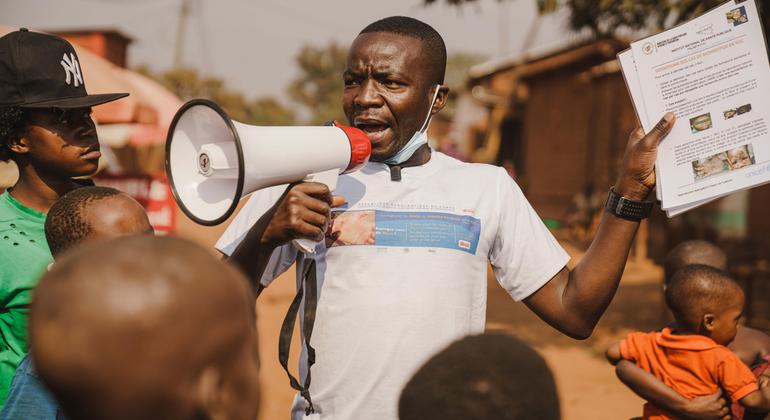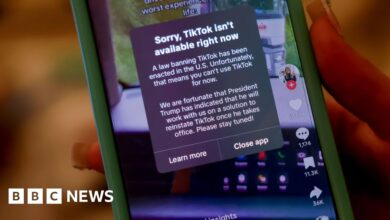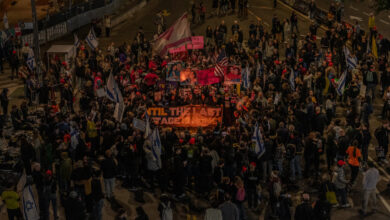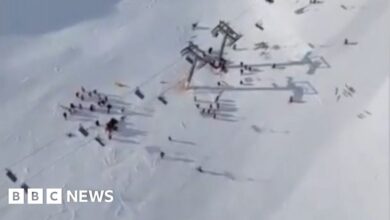World news in brief: UNICEF response in DR Congo, ‘unprecedented’ threat to Sudan’s heritage, calls for suspension of Cambodia’s press charter


The Democratic Republic of Congo (DRC) has recorded more than 21,000 suspected cases of the virus, including more than 5,000 confirmed cases and 700 deaths.
During the past week, UNICEF has received its first batch of vaccines totaling 215,000 doses, and more doses are expected soon.
Supplies and training
Meanwhile, the child care agency is supporting the rollout with supplies and logistics as well as training health workers on how to transport, store and administer the vaccine to patients.
In recent months, UNICEF has stepped up community-based surveillance, training more than 200 health workers, 100 sanitation experts and 200 community engagement teams.
Some 6,000 community workers have been deployed, with more than 30 local radio stations broadcasting public health messages.
Community engagement teams have so far reached 46 million people across the DRC through mpox messages via social media, direct interactions and text messaging.
The agency said efforts will now focus on vaccine efficacy and safety while also combating misinformation.
Sudan: UNESCO warns of museum looting, loss of priceless heritage
United Nations cultural agency, UNESCO, express deep concern on Thursday over looting and vandalism reported at museums and heritage sites in Sudan as rival military forces vie for supremacy amid accusations of war crimes.
The armed groups’ targets are said to have included the National Museum.
UNESCO is now calling on the international community to make every effort to protect Sudan’s heritage from destruction and illegal trafficking.
Since the fighting began in April 2023, UNESCO has closely monitored the impact of the crisis on Sudan’s heritage, cultural institutions and artists, which appears to have reached “unprecedented levels”.
Private collections are also believed to have been targeted, along with the looting of museums and archaeological sites.
Legal obligations
UNESCO says all belligerents have a duty to comply with international humanitarian law by not damaging, looting or using cultural property for any military purpose.
Significant collections were reported stolen from the Khalifa House Museum and the Nyala Museum. The agency said it was cross-checking these reports to determine the extent of the damage.
UNESCO reiterates its call on the international art market and the general public not to purchase or participate in the import, export or transfer of ownership of any cultural property from Sudan.
Any illegal sale or removal of these cultural artifacts could lead to the disappearance of part of Sudan’s cultural identity and jeopardize the country’s recovery, the agency said.
Cambodia: UN experts call for suspension of new ‘professional journalism’ charter
Independent UN human rights experts on Thursday call for suspension of Cambodia’s newly enacted Charter of Professional Journalism and called for a thorough review to reform the charter.
The Ministry of Information published the charter on July 24, but no comprehensive consultation was held when it was drafted, while some stakeholders were given only nine days to provide comments.
Just four days after the deadline, the bill was enacted without any further discussion.
Public interest protection ignored
The Charter fails to provide “a public interest veto” or establish remedies for factual errors, such as the right to correction and reply, experts say.
They added that the charter includes provisions that emphasize only disseminating accurate information, combating “fake news” and misinformation, rather than taking reasonable steps to verify information before publication.
Any media code, they said, must be inclusive, participatory and transparently developed by journalists themselves, not governments.
Any proposed monitoring or oversight mechanism would have to be independent of the authorities, however no such guarantee is given under the charter.
The Human Rights CouncilThe appointed experts – who are not UN staff and do not receive salaries – called on Cambodia to protect and promote independent, free and pluralistic media as a key pillar of democracy and to reform laws, policies and practices, including the Charter, that impede freedom of expression.



